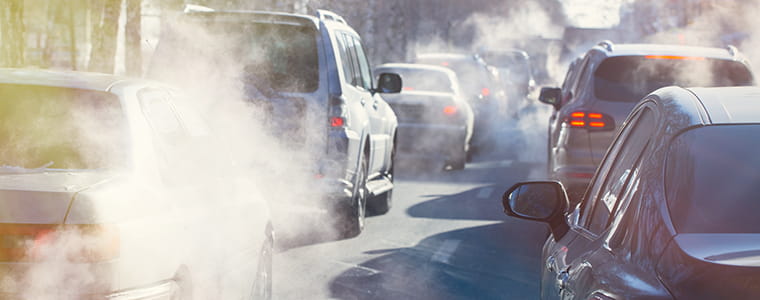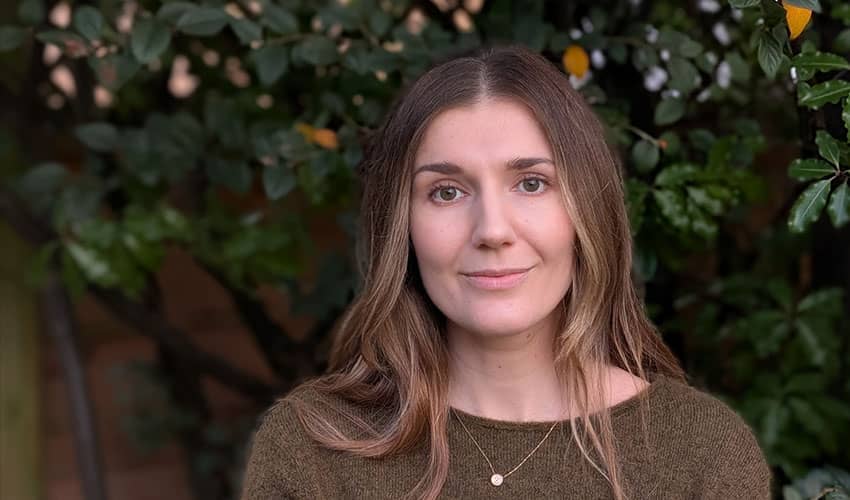Travel to shopping and leisure activities causes more air pollution than commuting

Data analysis work conducted at the University of the West of England (UWE Bristol) reveals that Bristol car travel to shopping and leisure activities contributes more air pollution than through commuting and business travel. It has also found that men contribute more road emissions than women.
The research assessed the role of people and society in creating pollution and is part of UWE Bristol-led ClairCity. This is an EU project that aims to raise awareness of air pollution and carbon emissions, and the impact on citizens' health in cities.
The team, also comprising Transport & Mobility Leuven, used innovative transport and emissions modelling integrated with travel survey data to examine data from the Bristol region and found that, looking across all ages, genders, and income brackets, over half of our emissions such as Nitrogen Oxides (NOx) and PM10 (fine particles) come from trips to the shops or other activities not related to work such as restaurant outings.
Professor Enda Hayes of the Air Quality Management Resource Centre at UWE Bristol said: "The project has taken an innovative step of apportioning air pollution to people's day to day behaviours and activities by merging travel survey data with socio-economic and transport data. This gives us a much clearer insight into the motives behind the trips that we make, and raises awareness of our behaviour and impact on pollution."
The project also took a closer look at who is creating the most emissions. It found that Bristolian men contribute 10% more to road NOx emissions than Bristolian women (40% vs 30%). This is largely because they use their car for commuting and business more than women. Both sexes contribute about the same NOx from bus trips.
Those aged 26–49 years old produce the most air pollutants through greater use of their cars for leisure activities and commuting to work, the research also found.
People with higher incomes travel more often by car than those from lower income households, resulting in higher emissions. The overall proportions for travel to each activity stays the same, but the amount of travel, and therefore emissions, increases. This means that richer people travel by car to more work locations, more leisure activities, and more business trips.
Professor Hayes said: "Traditional air quality and carbon policy has often focused on addressing morning and evening commuting, but our evidence helps to paint a clearer picture of which societal activities produce which emissions, and how. By doing so, it may contribute to the air quality and carbon policy debate, by highlighting behaviour in society as an important factor in achieving low carbon, healthy futures for our cities."
Air pollution causes five deaths per week in Bristol. Poor air quality disproportionately harms children and the elderly, causing respiratory diseases, cancer and heart conditions. Bristol City Council is legally required to reduce air pollution levels and has recently released a Clean Air Plan.
Reducing carbon emissions in cities is critical to achieve major cuts in carbon globally, so reducing climate risks. Bristol City Council and the surrounding authorities have pledged to be carbon neutral by 2030.
ClairCity has been involving city residents in future policy ideas since 2016. Policy suggestions will be combined with citizen preferences and aspirations, in order to generate sophisticated future scenarios that model the options available to each city. This unique approach is raising awareness of air quality in our cities and ultimately allows us to work towards a future with clean air.
Related news

16 February 2026
UWE Bristol researchers awarded grant to explore impact of asset recovery on offenders
UWE Bristol academics have been awarded funding to explore of the impact of asset recovery on deterring offender behaviour and disrupting crime networks.

10 February 2026
Work by UWE Bristol lecturer features in Government’s National Cancer Plan
Work by a UWE Bristol academic has been included in the Government’s National Cancer Plan.

23 January 2026
On-demand minibus services beneficial in rural areas but face financial challenges, trials suggest
Trials of ‘demand responsive transport’ minibus services boosted connectivity for people in rural and suburban areas, according to a new report produced by UWE Bristol researchers.

18 December 2025
UWE Bristol professor appointed National Institute for Health and Care Excellence CEO
Jonathan Benger CBE, Professor of Emergency Care at UWE Bristol, has been appointed as the new chief executive officer of the National Institute for Health and Care Excellence (NICE).

17 December 2025
Findings revealed from first UK study into experiences of mothers who are survivors of rape pregnancy
UWE Bristol academics have revealed the findings of the first UK-based study of the experiences of mothers who are survivors of rape pregnancy.

11 December 2025
Social media influencer work is far more demanding than it looks, research finds
A study exploring the mental health impacts of social media influencer work has revealed that life online is far more demanding than it appears.

25 November 2025
UWE Bristol experts join film Q&A exploring music and melodrama
Academics will take part in the Cary Comes Home Festival, with a post-screening Q&A exploring music, melodrama and emotional storytelling in classic cinema.

17 November 2025
Urgent reform needed to support ambulance-delivered end of life care, study finds
More than three quarters (78 per cent) of paramedics sometimes fear doing the wrong thing when caring for people in the last year of life, new research has found.

13 November 2025
Bristol’s screen industry experiences “boom-and-bust cycle” after post-pandemic recovery, new research from UWE Bristol finds
New research from UWE Bristol provides detailed insight into Bristol's screen sector.

13 November 2025
New AI research to revolutionise animal welfare
A UWE Bristol research project will combine behavioural science and AI to create technology that understands not only what animals do, but how they feel.

10 November 2025
Lessons from Low Traffic Neighbourhoods will drive better public engagement, study finds
Lessons from Low Traffic Neighbourhoods have informed a new toolkit to improve engagement with the public on challenging local street issues.

06 November 2025
First-of-its-kind study aims to help more people spend their final days at home
A new study will explore how architectural design could support end-of-life care in domestic settings.






